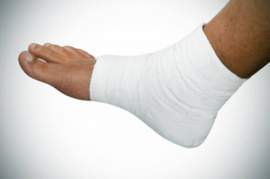
Alaska Workers Compensation

Popular In Employment
Kentucky Labor Laws Breaks Massachusetts Labor Laws Breaks Washington Labor Laws Breaks Michigan Labor Laws Breaks Alabama Labor Laws Breaks Employment Law Illinois Labor Laws Breaks Age Of A Cashier Preemployment Screening Fair Labor Standards Act Employment Guide Missouri Labor Laws Breaks
Frequently Asked Questions about Alaska Workers’ Compensation
What is Alaska Worker’s Compensation?
Alaska Worker’s Compensation is a program which your employer pays for to provide you with lost wages and medical costs in case you are injured on the job. Alaska Worker’s Compensation will also give befits to the dependents or descendants of an individual after a death cause by a worksite accident.
What injuries are eligible for Alaska Worker’s Compensation?
In order for an injury to be eligible for Alaska Worker’s Compensation, it must have occurred during the course of regular work and employment. Furthermore, Alaska Worker’s Compensation benefits will not be awards if an injury was caused by an employe’s intent to hurt or to kill another person—even if you were the person they were trying to kill—or if they were caused by the intoxication of the injured employee.
What should I do after I’m injured?
It is important that you follow these steps as closely as possible, since failing them could endanger both your health and your chances at qualifying for Alaska Worker’s Compensation.
1. Get first aid or medical care immediately.
2. Notify your supervisor about your injury. Make sure that you do this with a written letter that can be documentable in the future. You can also notify using the Report of Occupational Injury or Illness Form, which will allow you to give both detailed information about your situation and get a signature from your supervisor, demonstrating that they were notified.
3. Give your doctor the name and address of both your employer and your employer-purchased insurer. The doctor should report a notice of your injury to your insurer within fourteen days of you seeking treatment. Remember to notify the insurance company if you ever change doctors, though consulting a specialist in addition to your regular doctor does not constitute a change.
4. Keep all receipts for medical payments or any other costs related to your injury so that you can know what to ask your company to reimburse you for.
5. Forward copies to your insurer of your W-2 forms and other written records proving your earnings such as wage stubs. Your insurer will then figure out your weekly disability compensation based on this regular income, and other employer benefits may be taken into account as well.
6. Within 21 days of your notification of your injury, your employer will either begin to pay your Alaska Workers’ Compensation benefits or deny them. You may still fight for Alaska Workers’ Compensation benefits by filing a complaint.
How large with my Alaska Worker’s Compensation benefits be?
While you are unable to work, you will receive a benefits check every two weeks to provide for your livelihood. In general, the amount will be eighty percent of your regular wage, calculated as gross weekly earnings. There are certain exceptions, such as the maximum weekly compensation rate, which is somewhat more than $1,000 but is increasing each year. Furthermore, there is a minimum weekly compensation rate of 22% of the maximum compensation rate.



















